
Enhancing Student Outcomes and Teacher Practice through Math Mastery: A Comprehensive Study Tour and Curriculum Framework Development.
As a primary school teacher with ten years of classroom experience, I’ve had the opportunity to teach across year levels from Prep to Year 3. Throughout my teaching journey, I’ve developed a strong passion for ensuring that every student feels a sense of success in the classroom and equally, that every teacher feels confident and equipped to deliver high-quality lessons. Over time, I’ve become increasingly interested in how we can bring greater consistency and clarity to the way we teach mathematics across the early years.
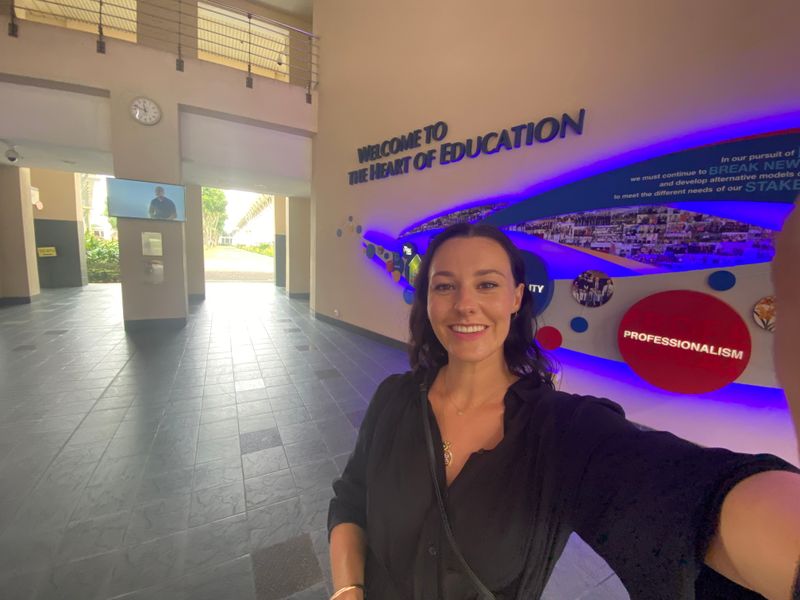
In 2024, I was fortunate to be awarded the inaugural Toowoomba Grammar School Teaching Fellowship to explore this interest more. My proposal, titled Enhancing Student Outcomes and Teacher Practice through Math Mastery: A Comprehensive Study Tour and Curriculum Framework Development, focused on investigating how the Math Mastery approach could strengthen both student understanding and teacher instruction in mathematics. This opportunity took me to Singapore to investigate the Math Mastery approach - an internationally recognised model of mathematics instruction that supports every student to achieve deep understanding through carefully sequenced, explicit teaching.
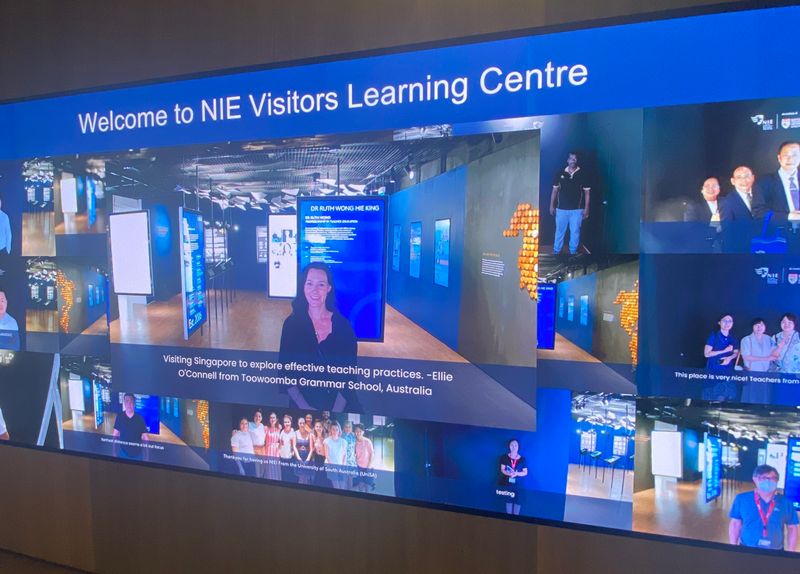
Why Mathematics? Why Now?
Across Australia, there is growing national concern about the long-term decline in mathematics achievement. Reports such as the Gonski Review (2018) highlight that many students are not mastering the basic skills needed for future learning, and that teachers need more explicit, structured tools to support all learners. In the early years of schooling—where concepts are first introduced, and mathematical mindsets are formed—it’s crucial that instruction is clear, consistent and effective. Gaps in understanding at this stage can have long-lasting effects on a child’s confidence and progress. The fellowship was an opportunity to examine international best practices and bring back evidence-informed strategies that could enhance both student outcomes and teacher practice in our own School.
Learning from Singapore: Schools and Insights
During my study tour in Singapore, I visited two leading international schools: Dulwich College and Invictus International School. Both schools use mastery-based approaches to mathematics, with structured, well-sequenced programs designed to develop deep conceptual understanding. At Dulwich College I observed math lessons from Years 1 to 5 that emphasised both mastery and practical application. The classrooms fostered a calm, focused learning environment in which teachers guided students through new concepts using clear, structured instruction, ensuring mastery through modelling, guided practice and checking for understanding before progressing. I also engaged in discussions with the school’s mathematics leadership team, who shared their planning processes and how they support teachers to differentiate within whole-class teaching.
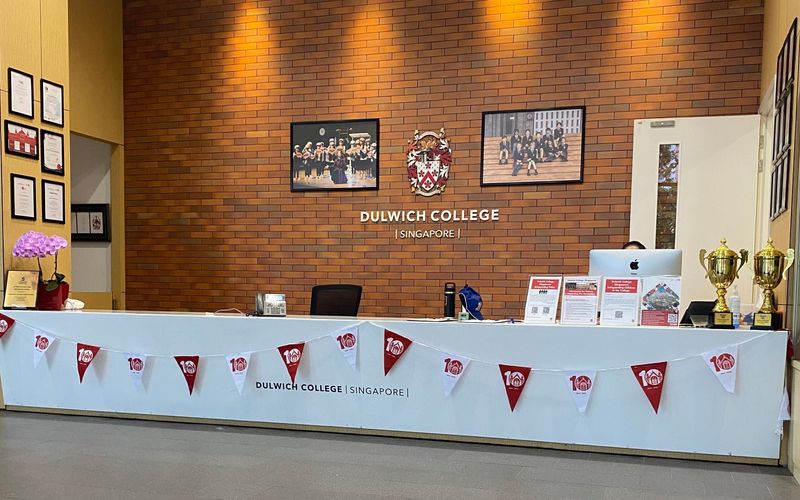
Invictus International School offered a contrasting yet equally valuable perspective. With a diverse cohort of learners and a flexible curriculum model, their team demonstrated how mastery principles can be embedded in a range of contexts. I also had the opportunity to meet with local educational consultants and curriculum developers, who offered insights into how Singapore’s national curriculum supports cumulative learning, daily review and concept mastery from the early years onwards.
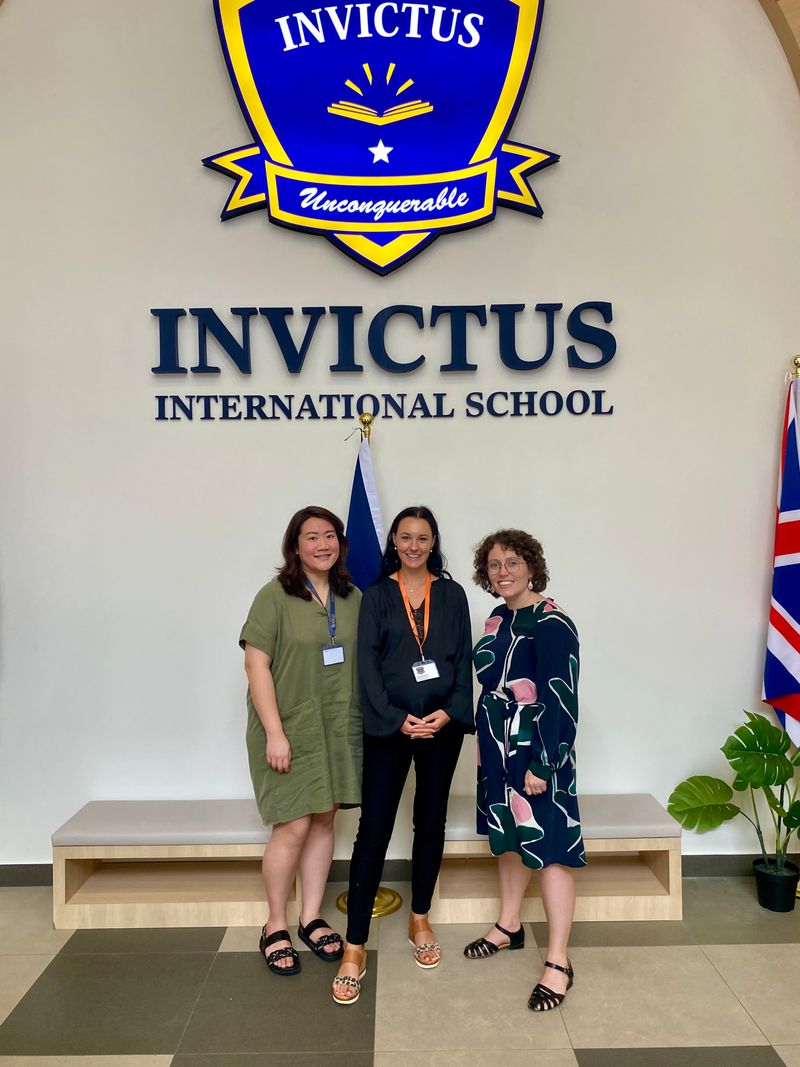
Key Findings: What Makes Mastery Work?
My observations confirmed the power of structured, explicit teaching in building strong foundations in mathematics. These were the key elements that stood out across all settings:
- Clear Learning Objectives
Teachers clearly define what students need to know and be able to do at the end of each unit or lesson.
- Whole-Class Instruction with Embedded Differentiation
Rather than streaming students by ability, mastery classrooms taught concepts to the whole class while using questioning, scaffolding and targeted support to meet individual needs.
- Corrective Instruction
Students who don't achieve mastery receive additional instruction or support to address knowledge gaps.
- Cumulative, Carefully Sequenced Learning
Each lesson built directly on the last, with time allocated for review and consolidation. This ensured that no student was left behind and that concepts were truly understood before new material was introduced.
- Mathematical Language and Reasoning
Teachers modelled precise vocabulary and encouraged students to explain their thinking. This supported deeper reasoning and helped students internalise core concepts.
- Learning Routines
Clear instructional routines and behaviours are established in every classroom, reinforcing expectations and supporting learning.
- Lesson Resources
Hands-on materials and visual examples are carefully chosen to help students connect with new concepts in ways that suit their learning needs.
- Fluency
Essential number facts are practised until automatic, helping students reduce cognitive load, enhancing students’ ability to focus on new and more complex ideas.
- Calm, Confident Learners
Most powerfully, students appeared confident, focused and proud of their mathematical thinking. The clear structure and shared learning journey contributed to a positive and inclusive classroom culture.
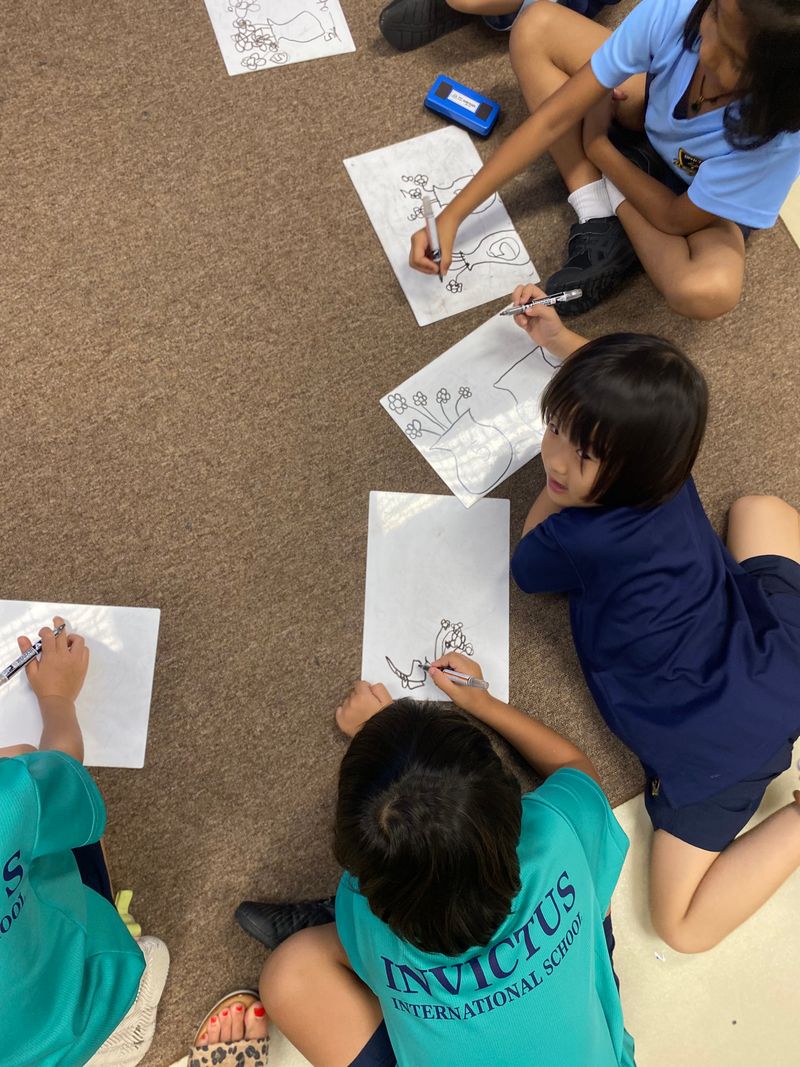
Global Perspective: Insights from Kinder World School
As a part of my research, I was able to engage in a conversation with Peter Baker, Principal Supervisor of 13 KinderWorld International Schools across Vietnam, I was able to dive deeper into how the Math Mastery approach works in large, diverse educational settings. These schools have adopted the Singapore Math model, a mastery-based framework built around explicit teaching and cumulative learning - many of the same principles I explored during my study tour.
Peter shared that their decision to adopt this approach was driven by a need for a consistent, evidence-based program that teachers could pick up quickly, deliver confidently and implement cost-effectively. “We started the explicit teaching model a couple of years back,” he explained. “We call it the KinderWorld Model. Retrieval practice to strengthen knowledge and problem-based application of learning is also included. I think it certainly makes a difference.”
What stood out to me in our discussion was just how closely their journey mirrors our own at TGS. We have already embedded strong practices in literacy through well-structured, whole-school programs that align with explicit teaching and the science of learning. However, mathematics remains an area where we see room for greater consistency and greater gains.
While our data confirms that we continue to perform above the state average in mathematics, recent NAPLAN results highlight a national decline in numeracy - a trend that we are aiming to avoid in our own School’s results. While we continue to do well, we have an opportunity and a responsibility to do even better for our boys. This is not just a local issue. In 2015, the Office of the Chief Scientist collaborated with ACARA to examine schools across Australia that had made significant improvements in numeracy over two years. Their report found that mastery-oriented environments were a consistent feature in high-performing schools (Smith et al., 2028).
When I asked Peter how the performance of his students compared to their peers in Australia, his response was compelling:
“We’ve had feedback from parents - many of whom are teachers - saying that when their children return to Australia, they are at least one to two years ahead in mathematics compared to their peers at home.”
This reinforces what global research has been saying for some time: structured, explicit, mastery-based teaching works. And more importantly, it works for all learners - not just the confident few.
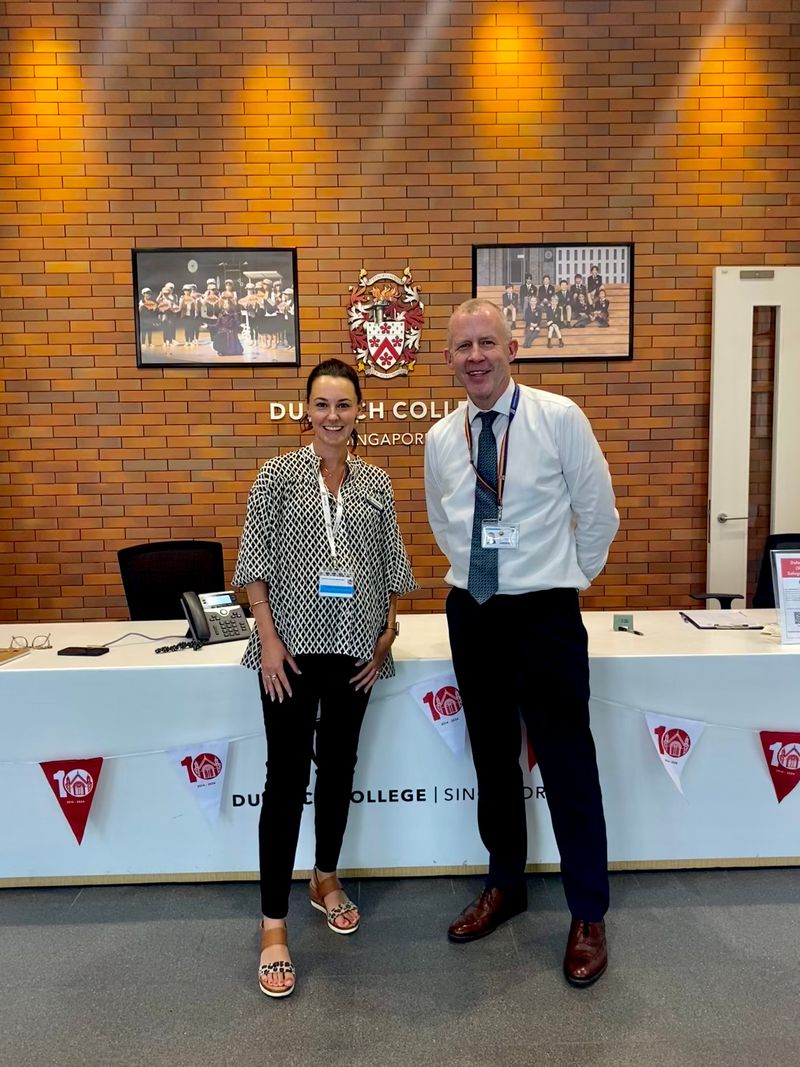
Bringing It Home: What’s Next for TGS?
I’m incredibly grateful for the opportunity this fellowship has provided - not only in shaping and deepening my own practice, but in contributing to a broader, shared vision for mathematics at TGS. This experience reinforced my belief that every student can succeed in mathematics when we give them the right tools, time and teaching. We are now laying the foundations for a clear and united approach to numeracy, one that will equip every boy with the confidence and skills to succeed - not just in the classroom, but throughout their schooling and beyond. And just as importantly, we’re building a community of confident teachers who are equipped to deliver lessons that are clear, consistent and deeply impactful.
I would like to sincerely thank Dr John Kinniburgh for granting me the opportunity to undertake this Fellowship. His support and encouragement throughout the process has been instrumental, and I am truly grateful for his guidance and mentorship. Dr Kinniburgh’s commitment to prioritising high-quality professional development for staff continues to shape a culture of growth and excellence in teaching and learning at TGS.
Latest Blog
Helping Boys Build Stronger Identities at TGS
Social media influencers, hyper‑masculine stereotypes and the pressure to “perform” academically, socially and emotionally can distort a young man’s sense of self long before he has the tools to understand what he’s feeling. Toowoomba Grammar School (TGS) has recognised this challenge and responded with intention. Through a bespoke Pastoral Care model and a powerful partnership with Tomorrow Man and other leading professionals, the School is reshaping how boys understand identity, connection…
Cambodia Cultural and Service Tour
Across twelve days with RAW Impact, the group moved through moments of cultural immersion, physical work, reflection and genuine connection with local communities. Their words capture the impact more powerfully than any adult could. Phnom Penh: Confronting history to understand the present The tour began in Phnom Penh, where the group visited the Killing Fields and S21 before beginning their service work. For many boys, this was the moment they realised the tour would be life changing. As Year…
Old Boy Geoffrey Smith inspires at our Senior School Speech Night
Toowoomba Grammar School’s Senior School Speech Night was marked by a powerful address from Old Boy Geoffrey Smith (2002–06), recently named the 2025 Australian of the Year for Queensland. Geoffrey, co-founder of Australian Spatial Analytics (ASA), has become a national leader in recognising the untapped potential of neurodivergent Australians in the workforce. His organisation provides geo-spatial and engineering services while creating meaningful employment opportunities - with 80 per cent…
Tears at the Gate, Pride at the Finish
Melanie Elms says she regularly sees a group of TGS parents socially, they've become lifelong friends Heartfelt moments bookend the boarding years “It feels very surreal. I'm proud, but it is very surreal.” Those were the words of Mrs Melanie Elms from 'Taringa' near Edgeroi, New South Wales, as she reflected on the moment her youngest son Sam finished his time at Toowoomba Grammar School. An end to walking up to Taylor House returning a boarder to TGS forever and it comes just 12 months after…
The Grammar Boy: TGS Character Cast in Bronze for All Time
Unveiled on Friday, 7 November 2025, this new statue is more than a work of art. It is a symbol of the enduring character that has shaped Toowoomba Grammar School for 150 years. The ceremony began with the ringing of the School House bell, it’s a sound many current students were hearing for the first time but one that may just have stirred memories for some of the Old Boys in attendance. As Headmaster Dr John Kinniburgh remarked in his address, “Today is a special occasion… one I’ve been…
Taking TGS Rugby West: making mates in the Longreach district
Last month, Head of Rugby Lincoln Clapham, TGS Old Boys' Association Vice President, Trent Raymond (1989-93) and two Year 11 boarding students, Luke Burrow (2025 First XV Co-captain) and Archie Smart, travelled 11.5 hours west to Longreach to deliver rugby clinics in partnership with the Longreach School of Distance Education (LSODE) and Western Queensland Rugby Union. Archie and Luke had both been to Longreach before but enjoyed the QANTAS Founders Museum The visit was part of a broader…
The Modified Rugby Program’s Game-Changing Impact
Founded in Brisbane in 2014 by the not-for-profit GingerCloud Foundation Limited, the Modified Rugby Program (MRP) gives neurodiverse young people the chance to play a sport and their families the opportunity to be part of a sporting community. It also allows coaches and player mentors the very privileged role of helping these young people have what many consider a normal experience - the joy of being part of a team. For Year 12 boarder Will Brown, it is a cause that is close to his heart.…
When School days become years of Mateship, Growth and Unforgettable Memories
Yesterday’s Awards Assembly for our senior cohort saw lashings of pride, reflection and a time for parents and caregivers to savour the very nearness of graduation after years of growth and grit. As the boys prepare for their final external exams and the much-anticipated Formal, this gathering marked the beginning of their final chapter at Toowoomba Grammar School. The assembly featured a moving reel that traced their growth from wide-eyed Junior School boys to confident young men. There were…
Japan: A Journey of Discovery, Culture and Connection
For 30 students and four staff members from Toowoomba Grammar School, the recent Japan Cultural and Technology Tour was a vibrant tapestry of tradition, innovation and transformation. From the bustling streets of Tokyo to the serene temples of Kyoto, this immersive experience offered students a unique lens through which to view the world. The Kinkaku-ji (Golden Pavilion)